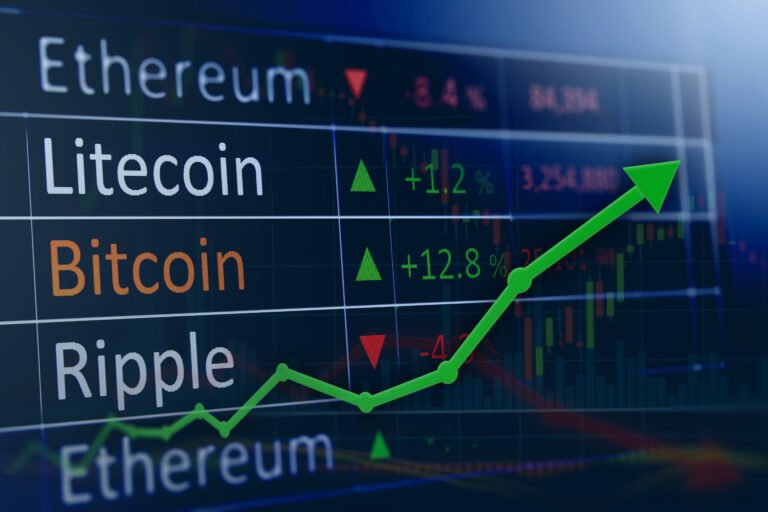Selecting the right cryptocurrency exchange is one of the most critical decisions you’ll make in your crypto journey. With hundreds of platforms available worldwide, learning how to choose the best crypto exchange can mean the difference between a secure, profitable trading experience and potential losses or security breaches. The cryptocurrency market has evolved dramatically, and today’s exchanges offer vastly different features, security levels, and fee structures.
Whether you’re a complete beginner looking to buy your first Bitcoin or an experienced trader seeking advanced features, understanding the key factors that distinguish excellent exchanges from mediocre ones is essential. This comprehensive guide will walk you through everything you need to know about evaluating crypto exchanges, from security measures and regulatory compliance to trading fees and user experience. By the end of this article, you’ll have the knowledge and confidence to make an informed decision that aligns with your trading goals and risk tolerance.
Understanding Different Types of Cryptocurrency Exchanges
Centralized Exchanges (CEXs)
Centralized exchanges are the most common type of crypto trading platform, operating similarly to traditional stock exchanges. These platforms maintain custody of user funds and facilitate trades through order books. Popular centralized exchanges include Coinbase, Binance, Kraken, and Gemini. They offer user-friendly interfaces, high liquidity, and customer support, making them ideal for beginners.
The main advantage of centralized exchanges is their ease of use and comprehensive features. They typically offer fiat currency support, allowing you to deposit and withdraw traditional money directly. Many also provide educational resources, mobile apps, and additional services like staking and lending. However, centralized exchanges require you to trust the platform with your funds, which introduces counterparty risk.
Decentralized Exchanges (DEXs)
Decentralized exchanges operate on blockchain networks without a central authority controlling user funds. Popular DEXs include Uniswap, SushiSwap, and PancakeSwap. These platforms use smart contracts to facilitate peer-to-peer trading, giving users complete control over their cryptocurrency holdings.
DEXs offer enhanced privacy and security since you maintain custody of your funds throughout the trading process. They’re also typically more resistant to censorship and regulatory interference. However, they often have steeper learning curves, lower liquidity for less popular tokens, and limited customer support options.
Peer-to-Peer (P2P) Exchanges
P2P exchanges connect buyers and sellers directly, allowing them to negotiate terms and complete trades without intermediaries. Platforms like LocalBitcoins and Paxful facilitate these direct transactions while providing escrow services and dispute resolution mechanisms.
P2P exchanges offer maximum flexibility in payment methods and can be particularly useful in regions with limited banking infrastructure. They also provide enhanced privacy compared to traditional exchanges. However, they typically have higher spreads, longer transaction times, and require more due diligence to avoid fraudulent counterparties.
Essential Security Features to Look For

Regulatory Compliance and Licensing
When evaluating how to choose the best crypto exchange, regulatory compliance should be your top priority. Reputable exchanges obtain proper licenses from financial authorities in their operating jurisdictions. In the United States, look for exchanges registered with FinCEN and compliant with state money transmission laws. European exchanges should have licenses from relevant national authorities or be MiCA-compliant.
Regulated exchanges implement robust anti-money laundering (AML) and know-your-customer (KYC) procedures. While these requirements might seem burdensome, they provide important protections for users and indicate the exchange’s commitment to operating within legal frameworks. Regulatory compliance also means the exchange maintains proper segregation of customer funds and follows established security protocols.
Cold Storage and Fund Security
The best crypto exchanges store the majority of user funds in offline cold storage systems, which are immune to online hacking attempts. Industry standards suggest that 95% or more of customer funds should be kept in cold storage, with only small amounts maintained in hot wallets for daily operations.
Look for exchanges that provide detailed information about their security infrastructure, including multi-signature wallets, hardware security modules (HSMs), and insurance coverage for digital assets. Some exchanges, like Coinbase and Gemini, offer FDIC insurance for USD deposits and private insurance for cryptocurrency holdings.
Two-Factor Authentication and Account Security
Strong account security features are non-negotiable when choosing a crypto exchange. At minimum, the platform should offer two-factor authentication (2FA) using authenticator apps like Google Authenticator or Authy. SMS-based 2FA is better than nothing, but less secure than app-based authentication.
Additional security features to look for include device whitelisting, withdrawal whitelisting, IP address restrictions, and email confirmations for account changes. Some exchanges also offer hardware key support for the highest level of account protection.
Security Track Record and Transparency
Research the exchange’s security history and how they’ve handled past incidents. While no exchange is immune to security threats, the best platforms are transparent about their security measures and have successfully defended against attacks or quickly resolved any breaches.
Look for exchanges that conduct regular security audits, publish transparency reports, and maintain bug bounty programs. They should also have clear procedures for handling security incidents and communicating with users during emergencies.
Also Read: Crypto Tax Reporting Guide for Beginners, Complete 2025 Tax Filing Manual
Evaluating Trading Fees and Cost Structure
Maker vs. Taker Fees
Understanding the fee structure is crucial when learning how to choose the best crypto exchange. Most exchanges use a maker-taker fee model, where makers (who provide liquidity by placing limit orders) pay lower fees than takers (who remove liquidity with market orders). Typical maker fees range from 0.1% to 0.25%, while taker fees range from 0.1% to 0.5%.
High-volume traders often benefit from tiered fee structures that reduce costs as trading volume increases. Some exchanges offer additional fee discounts for holding their native tokens or maintaining certain account balances. Calculate your expected trading volume and compare fee structures across different exchanges to find the most cost-effective option for your trading style.
Deposit and Withdrawal Fees
Don’t overlook deposit and withdrawal fees when evaluating exchanges. While many exchanges offer free cryptocurrency deposits, withdrawal fees can vary significantly. Some platforms charge flat fees for withdrawals, while others use percentage-based fees. Bank transfer fees for fiat deposits and withdrawals also vary widely.
Consider the payment methods you’ll use most frequently and calculate the total cost of moving money in and out of the exchange. Some exchanges offer fee-free withdrawals for certain cryptocurrencies or payment methods, which can result in substantial savings over time.
Hidden Fees and Spread Costs
Beyond stated trading fees, pay attention to bid-ask spreads, which represent the difference between the highest bid and lowest ask prices. Exchanges with low liquidity often have wider spreads, effectively increasing your trading costs. Some exchanges also charge convenience fees for instant purchases or simplified trading interfaces.
Look for exchanges that provide transparent fee schedules and avoid platforms with hidden charges or unclear pricing structures. The cheapest advertised fees aren’t always the best deal if the exchange has poor liquidity or high spreads.
Analyzing Exchange Features and Functionality

Available Cryptocurrencies and Trading Pairs
Different exchanges support varying numbers of cryptocurrencies and trading pairs. Major exchanges like Binance offer hundreds of cryptocurrencies, while more regulated platforms like Coinbase focus on established, well-vetted assets. Consider your investment strategy and whether you need access to newer or more exotic cryptocurrencies.
Trading pair availability is equally important. Some exchanges offer extensive fiat-to-crypto pairs, while others focus primarily on crypto-to-crypto trading. If you plan to trade frequently between different cryptocurrencies, look for exchanges with comprehensive trading pair offerings and high liquidity across multiple markets.
Advanced Trading Tools and Order Types
Experienced traders should evaluate the available trading tools and order types. Professional-grade exchanges offer features like limit orders, stop-loss orders, margin trading, and advanced charting tools. Some platforms provide API access for algorithmic trading and portfolio management tools for tracking performance.
Consider whether you need features like futures trading, options, or perpetual swaps. While beginners might not require these advanced features initially, having access to them can be valuable as your trading skills develop.
Mobile Apps and User Experience
In today’s mobile-first world, a quality mobile app is essential for active traders. The best crypto exchanges offer feature-rich mobile applications that provide access to all major platform functions. Look for apps with intuitive interfaces, real-time price alerts, and the ability to execute trades quickly and securely.
User experience extends beyond mobile apps to include website design, customer support quality, and educational resources. Exchanges with clean, intuitive interfaces and comprehensive help documentation can significantly improve your trading experience.
Liquidity and Market Depth Considerations
Understanding Market Liquidity
Liquidity refers to how easily you can buy or sell cryptocurrencies without significantly affecting the market price. Exchanges with higher liquidity typically offer better prices, smaller spreads, and faster order execution. This is particularly important for larger trades or when dealing with less popular cryptocurrencies.
You can assess liquidity by examining order book depth, daily trading volumes, and the number of active traders on the platform. Exchanges that consistently rank among the top platforms by trading volume generally offer better liquidity conditions.
Regional Availability and Market Access
Consider whether the exchange serves your geographic region and complies with local regulations. Some exchanges restrict access from certain countries due to regulatory requirements. Additionally, regional exchanges might offer better support for local payment methods and currencies.
Global exchanges often provide access to a broader range of cryptocurrencies and trading pairs, but regional platforms might offer more competitive pricing or better customer support for local users. Evaluate your priorities and choose an exchange that aligns with your geographic needs and regulatory environment.
Customer Support and User Experience
Support Channel Quality and Response Times
Quality customer support becomes crucial when you encounter issues with your account or transactions. The best exchanges offer multiple support channels, including live chat, email tickets, and phone support. Response times for critical issues should be measured in hours, not days.
Look for exchanges with comprehensive FAQ sections, detailed help documentation, and active community forums. Some platforms also offer priority support for high-volume traders or premium account holders. Test the support system with simple questions before committing significant funds to the platform.
Educational Resources and Learning Materials
Especially important for beginners, educational resources can significantly impact your trading success. The best exchanges provide tutorials, market analysis, trading guides, and cryptocurrency educational content. Some platforms offer webinars, trading simulators, and personalized onboarding experiences.
Consider whether the exchange provides research reports, market insights, and technical analysis tools. These resources can help you make more informed trading decisions and improve your overall cryptocurrency knowledge.
Reputation and Community Trust
Community Feedback and Reviews
Research community sentiment and user reviews across multiple platforms, including Reddit, Twitter, and specialized cryptocurrency forums. Look for consistent feedback patterns regarding security, customer service, and overall user experience. Pay attention to how the exchange responds to criticism and handles user complaints.
Be cautious of exchanges with predominantly negative reviews or those that have been involved in major controversies. While no exchange is perfect, platforms with strong community trust typically demonstrate better long-term reliability and user satisfaction.
Industry Recognition and Awards
Consider industry recognition and awards when evaluating exchanges. Platforms that receive recognition from cryptocurrency publications, regulatory bodies, or industry associations often demonstrate superior security, innovation, or user experience. However, don’t rely solely on awards – they should supplement your research and analysis.
Comparing Top Cryptocurrency Exchanges
Tier 1 Exchanges for Beginners
For newcomers learning how to choose the best crypto exchange, user-friendly platforms with strong security records are essential. Coinbase offers an intuitive interface and excellent educational resources, making it ideal for beginners in the United States. Kraken provides robust security features and transparent fee structures, while Gemini focuses on regulatory compliance and institutional-grade security.
These exchanges typically offer comprehensive customer support, mobile apps, and straightforward onboarding processes. They also provide insurance coverage for digital assets and maintain strong regulatory compliance records. However, they often have higher fees and more limited cryptocurrency selections compared to more advanced platforms.
Advanced Trading Platforms
Experienced traders might prefer exchanges with advanced features and lower fees. Binance offers the largest selection of cryptocurrencies and trading pairs, along with futures trading and margin capabilities. FTX (before its closure) was popular for derivatives trading, while exchanges like Bitfinex cater to professional traders with advanced order types and lending features.
These platforms typically offer lower fees, more extensive cryptocurrency selections, and sophisticated trading tools. However, they may have steeper learning curves and less comprehensive customer support compared to beginner-focused exchanges.
Regional and Specialized Exchanges
Consider regional exchanges that cater to specific markets or offer unique features. For example, Bitstamp serves European users with strong regulatory compliance, while Bitbuy focuses on the Canadian market. Some exchanges specialize in specific cryptocurrencies or trading strategies, such as decentralized finance (DeFi) tokens or privacy coins.
Regional exchanges often provide better support for local payment methods and currencies, potentially offering more competitive pricing for users in specific geographic areas. They may also have more responsive customer support and a better understanding of local regulatory requirements.
Making Your Final Decision
Creating Your Exchange Evaluation Checklist
Develop a personalized checklist based on your specific needs and priorities. Consider factors such as geographic availability, supported cryptocurrencies, fee structures, security features, and customer support quality. Weight each factor based on your individual trading goals and risk tolerance.
Use this checklist to systematically evaluate multiple exchanges, creating a scoring system that helps you identify the platforms that best match your requirements. Remember that the “best” exchange varies depending on your individual needs and trading style.
Starting Small and Testing Platforms
Before committing significant funds, test your chosen exchanges with small amounts. This allows you to evaluate the user experience, customer support quality, and overall platform reliability without risking substantial capital. Pay attention to deposit and withdrawal processes, order execution speed, and any unexpected fees or limitations.
Consider using multiple exchanges to diversify your risk and take advantage of different platform strengths. Many experienced traders maintain accounts on several exchanges to access different cryptocurrencies, trading features, and market conditions.
Conclusion
Choosing the best crypto exchange requires careful evaluation of multiple factors, from security and regulatory compliance to fees and user experience. The ideal platform depends on your individual needs, trading goals, and risk tolerance. By following the guidelines in this comprehensive guide on how to choose the best crypto exchange, you’ll be well-equipped to make an informed decision that supports your cryptocurrency trading journey.
Remember that the cryptocurrency landscape continues to evolve rapidly, and exchange features and reputations can change over time. Stay informed about industry developments, regularly review your chosen exchanges, and be prepared to adapt your strategy as needed. Start by identifying your priorities, researching thoroughly, and testing platforms with small amounts before committing significant funds.
FAQs
What’s the most important factor when choosing a crypto exchange?
Security should be your top priority when selecting a crypto exchange. Look for platforms with strong regulatory compliance, proper licensing, cold storage for user funds, and a clean security track record. Without adequate security measures, even the best features and lowest fees become irrelevant if your funds are at risk.
How do I know if a crypto exchange is legitimate?
Legitimate exchanges have proper regulatory licenses, transparent fee structures, clear terms of service, and responsive customer support. They also maintain an active social media presence, provide detailed security information, and have positive community feedback. Avoid exchanges that lack regulatory compliance or have suspicious operational practices.
Should I use one exchange or multiple exchanges?
Using multiple exchanges can provide diversification benefits, access to different cryptocurrencies, and protection against platform-specific risks. However, managing multiple accounts increases complexity and security responsibilities. Start with one reputable exchange and gradually expand to additional platforms as your needs grow.
Are decentralized exchanges safer than centralized ones?
Decentralized exchanges eliminate counterparty risk since you maintain custody of your funds, but they introduce other risks like smart contract vulnerabilities and user error. Centralized exchanges offer better customer support and user experience but require trust in the platform’s security and operations. Choose based on your priorities and risk tolerance.
How much should I expect to pay in trading fees?
Trading fees typically range from 0.1% to 0.5% per trade, depending on the exchange and your trading volume. High-volume traders often qualify for reduced fees through tiered pricing structures. Consider the total cost of trading, including deposit/withdrawal fees and bid-ask spreads, when comparing exchanges.


